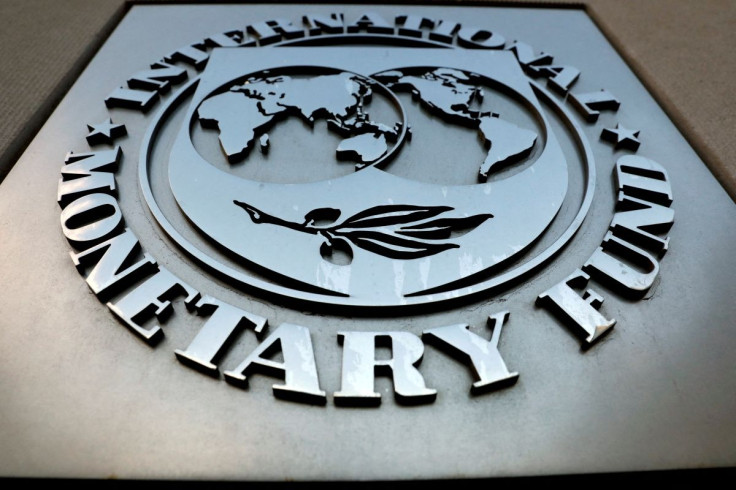IMF Sees Inflation As 'Significant Risk,' But Eyes Gradual Moderation In Rising Prices

Headline inflation has moved above central bank targets in most Group of 20 economies despite weaker growth momentum and remains a "significant risk," but rising prices should moderate gradually in most economies this year, the IMF said Wednesday.
The International Monetary Fund said inflation had "continued to surprise on the upside" mainly due to rising commodity and shipping prices, continued mismatches in supply and demand, and shifting demand for more goods.
But longer-term inflation expectations remained generally well-anchored in economies with strong policy frameworks, the global lender said in a surveillance note prepared for a meeting of G20 finance ministers and central bankers this week.
The IMF said downside risks continued to dominate and economic indicators released after it downgraded its forecast for global growth by half a percentage point to 4.4% in January pointed to "weak growth momentum."
Renewed mobility restrictions in the euro area, Japan and Britain had weakened service-sector activity in recent months, while the spread of the coronavirus had dented consumer sentiment in the United States.
IMF staff estimated that supply disruptions had likely subtracted between 0.5 and 1 percentage point from global gross domestic product growth in 2021 and lifted core inflation by 1 percentage point, the IMF said.
The potential emergence of new and dangerous variants of the COVID-19 virus could drag down economic activity.
Supply-demand mismatches could also take longer to resolve than expected, weighing on output and fueling wage inflation, which in term could prompt an earlier-than-expected tightening of monetary policy in major advanced economies, especially in the United States, the world's largest economy, the IMF said.
"This could dampen the global growth outlook, lead to a sudden tightening of financial conditions, and prompt capital outflows from emerging market economies," the IMF said, noting the added risk posed by already-high debt levels.
China's economy, the world's second largest, could see growth slow further if it ran into further problems in its real estate market, private consumption did not recover, and a widespread COVID-19 outbreak caused further disruption, it warned.
Central banks in emerging market economies should be prepared for adverse shocks if inflation continues to rise in major economies and they adopted steeper-than-expected interest rate increases, the fund said.
© Copyright Thomson Reuters 2024. All rights reserved.




















